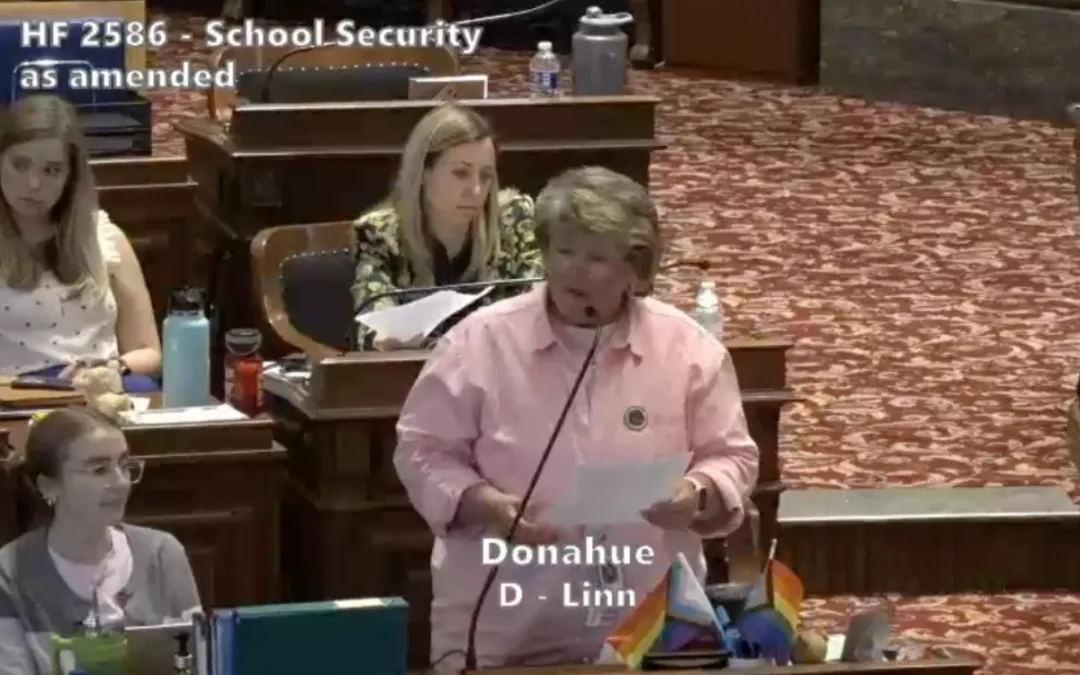
Accessing healthy food in rural America can be a struggle. It’s an odd paradox: small farming communities in “the nation’s breadbasket” where buying a loaf of bread might not be an option.
Looking at a USDA map of food deserts would alarm most people. Many would be surprised to find they live in one, or extremely close. Food deserts — 10 miles or more away from fresh food, in rural areas — are increasingly common as local grocers become fewer and farther between.
“A grocery store may not work in every single small town, and then you try to figure out how to work with the retailers we have to create opportunities to bring in some fresh fruits and produce,” said Bill Menner, former state director of USDA’s Rural Development. “And that’s the challenge, and there’s not an easy answer to addressing it.”
As the United States struggles with a growth in the rate of Type-2 Diabetes, especially in rural areas in the Midwest and South, it’s clear that access to affordable, fresh food is not easy.
[inline-ad id=”0″]
Mitchellville, Iowa: A Case Study
Surprisingly, there are a lot of food deserts in both urban and rural areas. Part of this has to do with USDA classifications, which designate places based on income and access to fresh fruit, vegetables and meat. The formula also takes into account the portion of the population with personal transportation.
Mitchellville, Iowa, despite its lack of local grocers, is not considered a food desert because of its proximity to larger cities. Situated on the edge of Polk County, Mitchellville counts about 2,400 residents.
Situated between Des Moines, with a metro population over 300,000, and Newtown, a large rural city of more than 15,000, Mitchellville residents have opportunities in either direction to shop for groceries.
“The location of Mitchellville, in relation to Newton and Des Moines, and even Colfax, people have choices, and they’ve clearly made the choice to shop places that make sense for them,” Menner said.
But Mitchellville is also the poorest town in Polk County. For those who work in Des Moines, Newton, or Colfax [halfway between Mitchellville and Newton], groceries are easy to get in a daily routine. [Colfax has a full-service grocery store less than 10 miles away from Mitchellville.]
But for those who don’t leave town to work and can’t afford to travel otherwise, finding so much as a vegetable can be a struggle. The town only has a Casey’s General Store and a Dollar General, in terms of food selection, outside of a couple eat-in dive bars.
Mitchellville used to have a grocery store. But, as people who worked in the bigger cities purchased their groceries at Walmart or Hy-Vee, the town’s grocer ran out of customers and closed its doors nearly 20 years ago.
“Mitchellville is a really small town, so it’s hard to sell something at a less expensive rate like you can buy it if you drive 10-15 minutes to Altoona,” said Joan Allsup, who helps run Pumpkinville and Cornmaze in Mitchellville. “I did a lot of my shopping here because I wanted to keep the store, but a lot of people who work in Altoona pick things up before they come home from work, especially with bigger families.”
[inline-ad id=”1″]
Deserted
For those who can’t easily travel outside of Mitchellville, their food options are scarce.
“You have these challenges in small towns as to, how do we take care of people who are food insecure in our communities and make sure that they have fruits and vegetables, or food at all, so that they aren’t going to bed hungry?” Menner noted. “That’s a recurring problem across the state.”
While in town, Starting Line talked to residents that work and volunteer at the local library — which used to be the grocery store. They run several meal programs throughout the week for schoolchildren, retirees, and needy groups in between.

Coolers in Mitchellville Dollar General grocery section, labeled “fresh food,” filled with sugary drinks, highly-processed snack/deli foods, and alcoholic beverages.
They talked about a retired veteran who lives on his own since his wife died. His injuries, age and PTSD make working impossible. The ailments leave him largely unable to travel on his own, which makes driving even 10 minutes for groceries an obstacle.
However, he lives near the local Dollar General. As a result, his diet consists mostly of frozen, microwavable dinners — the Hungry Man meals of the world.
“A lot of the people who shopped at the store in town were people who couldn’t afford or weren’t physically able to go to the bigger towns,” Allsup explained. “But they really didn’t have a choice, they had to get their groceries here.”
Now, those residents who had to buy their groceries in town are left with a limited list of options.
[inline-ad id=”2″]
Picking Up the Slack
Because Mitchellville has such limited opportunities to buy fresh produce, and due to the high percentage of people who are food-insecure, community members have stepped up and created a handful of programs to help.
Convenience stores like Casey’s, Kum & Go, Kwik Trip, and Git ‘n’ Go have also upped their produce offerings in the last few years. In Mitchellville, Casey’s offers pizza, sandwiches, chicken strips, etc., in addition to fruit cups, apples, oranges, and meat and cheese plates.
While it doesn’t offer a wide variety like a grocery store would, the convenience store does offer some produce to local customers.
“It doesn’t change the fact that there are places, rural and urban, that don’t have access to grocery stores, and don’t have access to fresh produce and fresh fruits, but I do think that retailers are looking at that and thinking about strategic decisions to create healthier options and opportunities,” Menner said. “It’s not like you go there and all you can get is a tube of Cheez Whiz.”
[signup_form]
Casey’s General Store and Kum & Go did not respond to Starting Line’s interview requests.
There are a couple of food pantries in Mitchellville, one permanent and another that comes through weekly. Pumpkinville and Cornmaze offers seasonal fruits and vegetables — the town started a farmers’ market again over the summer to try and stimulate buying and selling of fresh produce — and the library offers an after-school snack program to provide kids with fresh fruit.
“Our town comes together and we feed a lot of people. Our summer school program, we feed 150 people a day,” said Ellen Heather, director of the Mitchellville Public Library. “And it’s not just the kids, it’s the seniors. We have a Wednesday night program that feeds kids and seniors as well.”
These two initiatives in Mitchellville provide free, weekly meals to community members, and more opportunities pop up throughout the year, including drives for specific families.
Community Programs
There are other educational projects going on in Mitchellville pertaining to the nutritional health of young people.
“I don’t know that the kids are particularly aware of what their families have to go through to get them healthy food. They don’t even know that they’re in somewhat of a food desert,” said Demi Johnson, who runs ISU’s “Kids in the Kitchen” program in Mitchellville. “Our health habits start at a very young age, so kids who develop a taste for various fruits and vegetables and nutritious foods tend to live healthier lives into their adulthoods.”
Kids in the Kitchen teaches kindergarten through fifth grade students real-world cooking skills, basic diet guidelines and sets them up for long-term healthy eating habits. Johnson taught the first group in Mitchellville over the summer, and will continue in February.
“The focus of the program is more so to get students who come from lower-resource families to try new foods, practice cooking foods from home that are healthy, safely,” Johnson said. “The program was primarily in Des Moines public schools, but I felt that our rural communities also needed that, and that’s where Mitchellville came in.”
Mitchellville isn’t alone in its struggle for fresh food. There are communities across the country that are trapped in a similar position; too close to big cities to be self-sufficient with grocery options, but too far from those places to assure that everyone has access to healthy food.
“This is not unique to Mitchellville, it’s something that a lot of rural communities are facing,” Menner said. “And the economics are not all that different in many other places where you have higher levels of poverty in lots of rural Iowa communities than you have in urban areas.”
By Josh Cook
Posted 12/3/19
Politics

Abortion supporters rally before Iowa Supreme Court arguments
Abortion saved her life seven years ago and Leah Vanden Bosch is more grateful for it now than ever. Vanden Bosch, who serves as the development and...

New VA program to help more than 40,000 veterans stay in their homes
The Department of Veterans Affairs (VA) will launch a “last resort” program for tens of thousands of American veterans who are in danger of losing...
Local News

No more Kum & Go? New owner Maverik of Utah retiring famous brand
Will Kum & Go have come and gone by next year? One new report claims that's the plan by the store's new owners. The Iowa-based convenience store...

Here’s a recap of the biggest headlines Iowa celebs made In 2023
For these famous Iowans, 2023 was a year of controversy, career highlights, and full-circle moments. Here’s how 2023 went for the following Iowans:...







